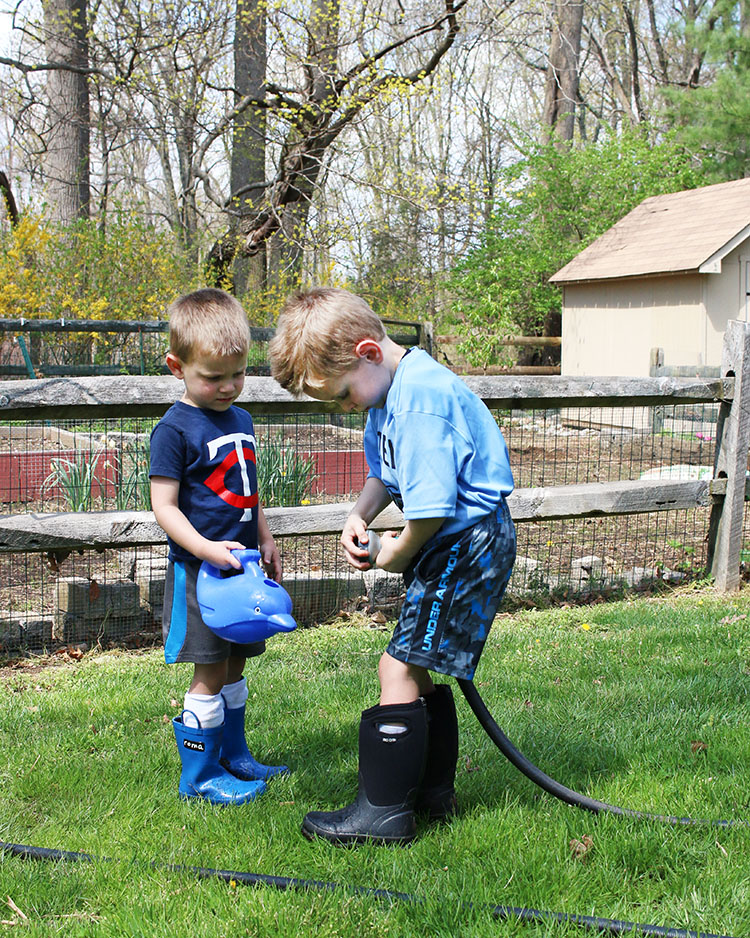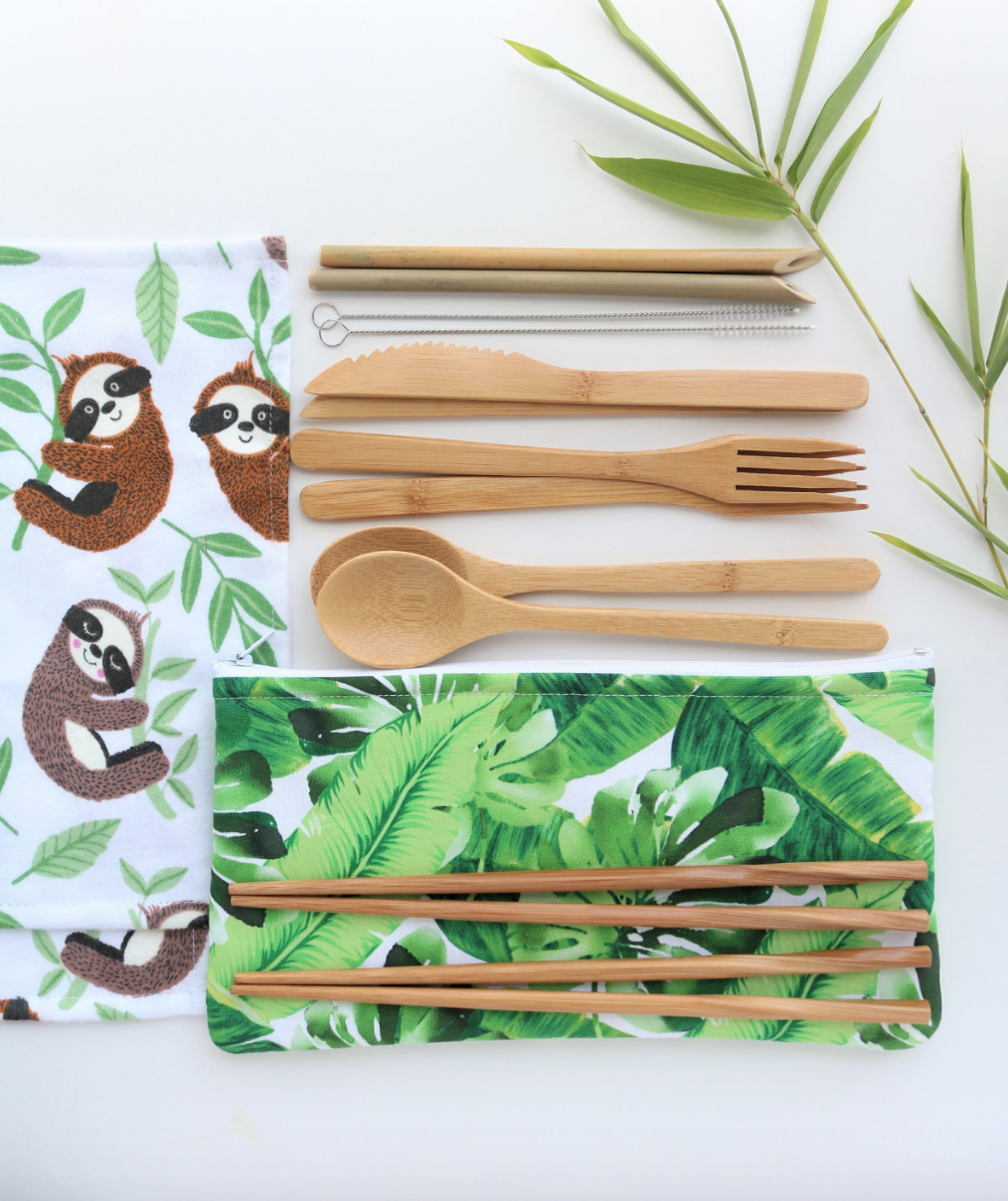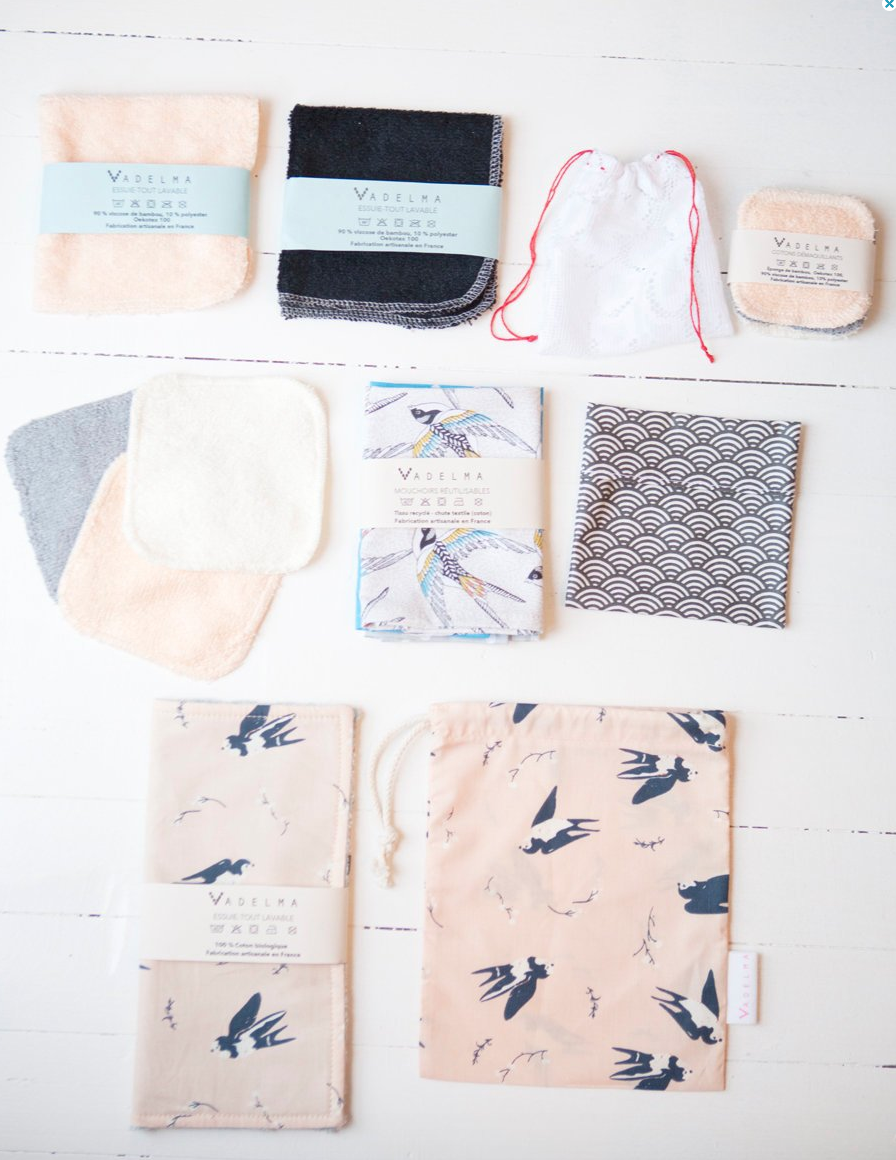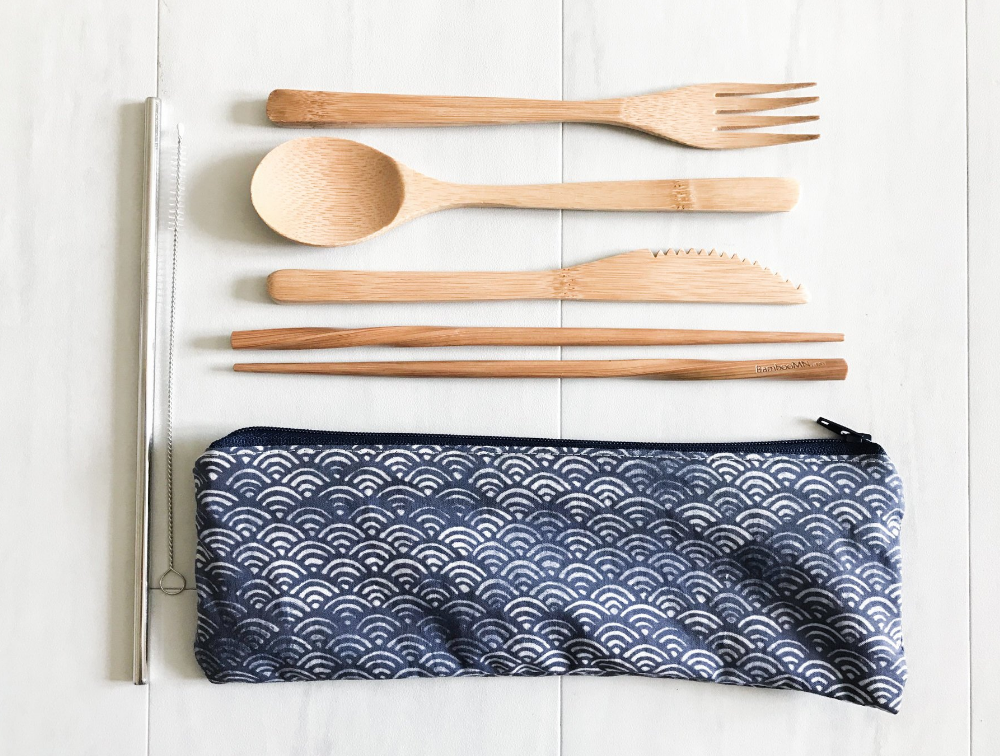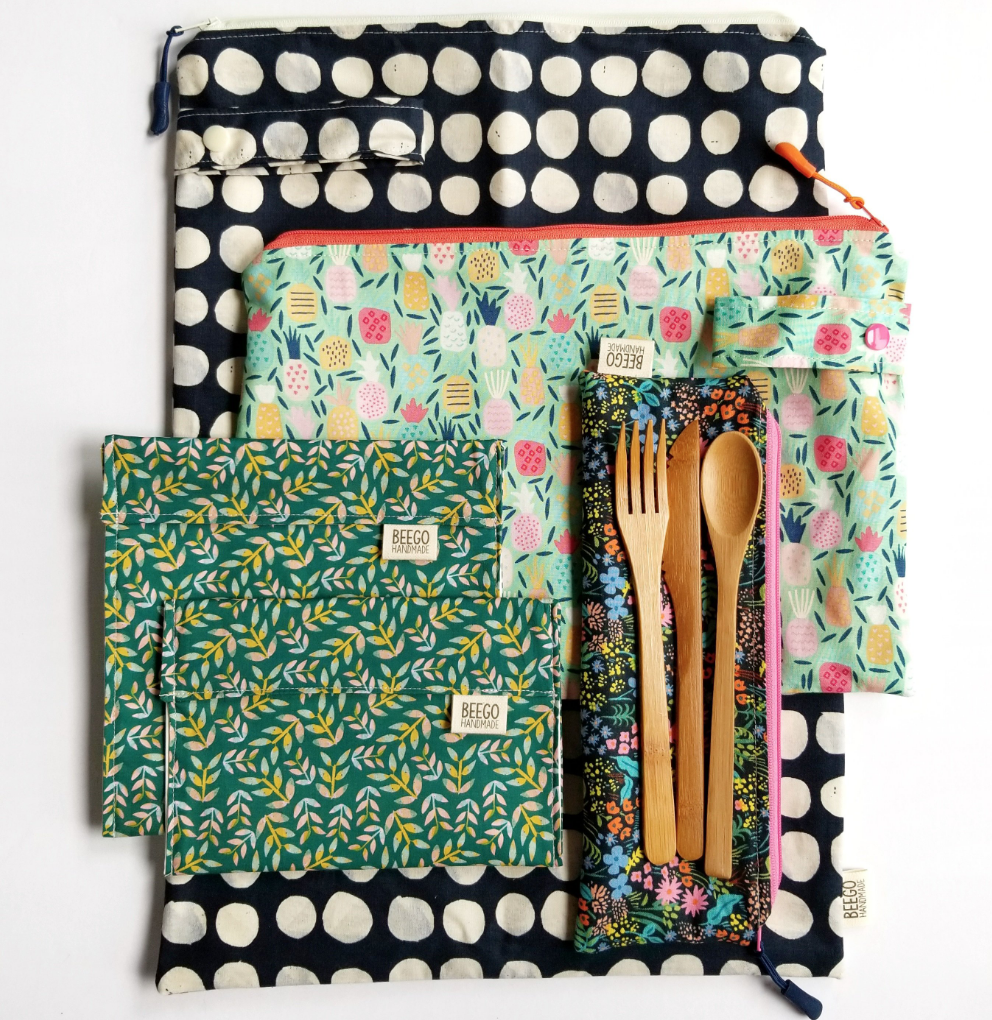Getting Real About The Zero Waste Movement for New Moms with Honestly Modern
/I’ll be honest, being a dog mom is about as much as I can handle, so I’m blown away by watching my friends have babies. They not only keep their small humans alive, they also manage to feed themselves, balance a career, and keep the house standing.
Which made me start to wonder, if trying to go zero waste and reduce my own environmental impact is this much conscious effort and sometimes extra work, is it even remotely realistic for new moms? They already have so much on their plate!
Naturally, I turned to Jen over at Honestly Modern for answers. Not only is she a badass blogger and fabulous mom (who has been-there-done-that with the new mom phase), she balances a career and eco-friendly lifestyle to boot. If anyone could give me an honest glimpse into the intersection of motherhood and the zero waste movement, if would be Jen.
**All photos provided courtesy of Honestly Modern
Bringing home a newborn is one of the biggest adjustments most new mamas have had to face. Is it possible to stay zero waste with a newborn?
Maybe? But I don't believe it's worth setting as a goal. First, we need to take zero waste lifestyles with a grain of salt. Even if we can maintain relatively zero waste homes, there is a lot of waste upstream over which we have little direct control. Further, I don't think that a truly zero waste lifestyle is all that admirable or achievable because the effort to really be zero waste (irrespective of the upstream waste) requires more energy than it's worth. So... first give yourself a break because none of us are single-handedly saving the world by keeping a few things out of our trash cans. That being said, I definitely value reasonable efforts to reduce waste, and I think new parents can practice many zero waste routines with a new baby.
New babies really don't require much. There's a whole lot of hype about having "all the things" for a new baby, but most of this we can live without, pretty easily in fact. So, first and foremost, don't buy what you don't need. Extra crib sheets? The newest swing? All the fancy gadgets? Not necessary. Foregoing all the big, unnecessary gadgets and extra accessories is the most effective way to reduce waste. Additionally, babies outgrow almost everything so quickly that the secondhand market is ripe with high quality products, so definitely make use of this for things that are worth buying. Facebook groups, neighborhood consignment shops, online resale shops, and family and friends are gold mines for secondhand baby gear. If you're offered something from a friend or family and it's in good quality, accept it! Car seats expire, so this might be one exception depending on how much you know about the history of the car (age, whether or not it's been in accident, etc...) but just about everything else can be secondhand.
In some areas, disposable is really convenient. For breastfeeding moms, things like disposable breast pads work much better than reusable ones (at least for me). Breastmilk is liquid gold and stored in single-use plastic bags; these are so worth it when you have an opportunity to breastfeed your baby and store up extra milk for the future. For formula feeding moms, formula comes in recyclable containers, but they are single use. We should never feel guilty for feeding our baby the best way we can, no matter how that is and what waste it generates.
So, reduce what you buy, reuse what you can, and don't feel guilty for not always making zero waste your top priority.
What are the biggest sources of waste with a new baby? What tips and hacks do you have for avoiding these pitfalls?
Hands down, most people just buy too much stuff! Except for some diapers and a few outfits, you really don't need much when a baby comes home. You don't even need a crib because the baby often won't sleep in it right away. Wait to buy things until you actually need them, not when you're trying to stuff a baby shower wish list with things that might come in handy. Especially avoid single-purpose items that are "made for babies" like special food processors and storage containers. These are consumer ploys to get people to buy more things. The food processor you already have and a silicon ice cube tray will work just as well.
Are cloth diapers realistic? How do you clean those dang things?
We didn't do cloth diapers. I thought about them a lot and did quite a bit of research before my first son was born. But we chose daycare in the city for our boys and walked them a half mile each way in Chicago winters. The thought of carrying home heavy, dirty diapers every day and then having to deal with them in our small apartment and tiny washing machine (when we already had plenty of overwhelming, lack of sleep, new parent duties) seemed like far too much work. As a kid, my mom used cloth diapers for me and all my sisters, and she had a delivery service that picked them up, washed them, and dropped off new ones each week. I looked into this as well but couldn't justify the cost. In the end, I'm not sure the carbon from all the transportation or the water usage from all the washing is all that much better. At the very least, I don't think the environmental benefit is as grand as it initially seems on the surface. I haven't done the research, but that's just my guess.
None-the-less... is it realistic? Plenty of families use cloth diapers. It's definitely possible. I'm not sure if I knew any families that used cloth diapers and sent their children to daycare. Using cloth diapers is definitely much easier for families with a parent that stays home or that have a nanny. The diapers can be cleaned, and there are many specific cleaning products on the market to clean the diapers without adding too many harsh chemicals, but I can't say much about them because I never used them myself. I also think they're pretty expensive. Young babies outgrow diaper sizes quickly. I think certain brands of cloth diapers fit multiple baby sizes, but without a serious stash of diapers, families will be doing diaper laundry every day! Newborn babies go through 8 - 10 diapers a day sometimes, and it's best practice to wash the diapers at least every other day. I guess to me that just sounds like more work than it's worth for a lot of extra water and energy use with my washer and dryer (despite keeping dirty diapers out of landfills).
I'd suggest parents chose what best meets their priorities and find a balance that works. There are so many unknowns and sources of stress with a new baby that piling on dirty cloth diapers, if it's not a priority, is not worth it.
What are three things environmentalists-turned-expecting-mothers need to have on hand or put on their registry to prepare THEMSELVES? And to prepare the nursery?
Patience, support, and a comfortable place to sleep? Ha. I know that's not what you're asking, but being a new mom is thoroughly exhausting and comes with a host of surprises for which no one can prepare you (if for no other reason than every baby is different).
But really, in terms of things, there isn't a whole lot. Swaddles are amazing, and muslin were my favorite. Lots of old (but soft) rags and towels to clean up spit up, lay on the ground to change diapers, and more. These can even be old t-shirts. Also, have laundry detergent on hand because new babies generate crazy amounts of laundry. Buckaroo is my favorite brand, and the soap nut powder comes in compostable / recycable packaging. It works in both top load and front load washers. Have plenty of diapers on hand (no matter what kind of diapers you're using) but not too many in small sizes because babies grow out of the Newborn and Size 1 diapers faster than we realize. You also need a car seat to bring home the baby.
I had my babies before I really started getting involved in a more eco-friendly lifestyle. If I were doing it today, I would get really familiar with secondhand marketplaces for kids things (particularly online ones because getting out the house can be a challenge). Maybe have a list of online resale sites like thredUP you can use when you need new clothes as well as join local Facebook buy and sell groups so you can be on the lookout for things you will need as your baby grows. I really the think most eco-friendly way to be a new mom is to take advantage of the incredible amount of high-quality baby gear that's already out in the world. Buying new is almost never necessary, especially with a tiny bit of planning or foresight.
For moms I might recommend some really comfortable underwear. There's a whole lot going on down there for weeks after the baby is born, something that more than surprised me. Breastfeeding moms will want to have nipple cream. There are many brands that sell all-natural versions so check out a site like Mightynest that curates eco-friendly and more holistic products. I know there are lots of brands available. Also if you're planning to breastfeed, know how to use and charge the breast pump before the baby is born. I remember being really engorged and not being able to figure out how to charge it our use it; it was the worst as I sat on my bedroom floor in hormonal, emotional tears over something that wasn't that big of a deal once I finally got it figured out. I know these aren't necessarily eco-friendly mom tips, per se, but so much of being a new mom is about taking a few minutes to relax if and when you have the chance, accepting help when offered, and giving yourself grace for not knowing how to do something. It's the first time, and no one is an expert at anything the first time they try it. We can only be our best selves as moms when we give ourselves a little TLC and grace.
What's been your biggest learning lesson raising kids and living a reduced waste lifestyle?
Remembering that different families have different rules. I tell my kids this all the time. I'm pretty sure when they are older, it will be one of the phrases they look back on and roll their eyes about. "Remember when mom always used to say .... " But it's so important and also really easy to forget. I have to remind my kids constantly that we make different choices than other families, and both options are fine. While I don't want to compromise on my values, I also don't want to imply to my children that everyone else is doing it wrong.
I have to remind myself of this principle regularly too. It's okay if another family has eight billion plastic toys or buys all their kids clothes at fast fashion stores and tosses them in the trash after three wears. (I might not like it or agree with it, but I'm not in a position to be judging them.) If how others families operates is not commensurate with our priorities, then we have to be okay being different, being an outlier. There is a lot of pressure and competition among parents, even if it's only internal stress we create for ourselves. Are we good enough? Are we doing it right? Are we giving our kids the best opportunities and setting them up for success? Living a reduced-waste or eco-friendly lifestyle is not the status quo, so as a parent, in many respects, you'll often find yourself swimming upstream and you just have to keep swimming and stay strong.
*This gallery contains affiliate links. This means that if you click through and give the product a whirl, I get a tiny fee for spreading the news at no extra cost to you.
Do you have any life hacks to pass on for those first challenging several months?
The ones that come to mind and kind of cliche, but don't be afraid to ask for and accept help and maybe prepare some freezer meals in advance. I would say nap when the baby naps, but I'm not a napper and I NEVER did that. Those aren't life hacks, but they're true. Ultimately, you'll survive those crazy first few months, and when you reflect on it, you'll wonder how you ever did it. At the same time, you'll remember that you just kept at it and, funny enough, you don't remember feeling as tired then as you do years later after just one sleepless night. Mother Nature has an amazing way of preparing us for and arming us with the biological tools we need to do what needs to be done.
Did having children change your priorities from an environmental perspective?
Having kids definitely makes me think about the future more. Age (and wisdom?) has contributed to my perspective as well, but I often think now about "what will our world be like for my kids and my grandkids when I'm gone?" I think I can handle a lot of the changes, but what it will mean for them? Having kids definitely changes my perspective to think more about where our world will be in 100 years. I might not live to see it but my kids hopefully will!
If you could give expecting zero-wasters or nearo-wasters one piece of advice, what would it be?
Just do your best! Set reasonable goals with respect to eco-conscious living, and know that "perfect" sustainability doesn't exist. Apply the zero waste practices that are pretty easy, the low-hanging fruit on the tree, and then move on to other areas in your life. Once you have kids, you're already stretched pretty thin, so don't try to be perfect zero wasters. You'll just be placing way too much stress on yourself that's not worth it. None of us are individually going to change the world.
A huge thank you to Jen for dropping by!
Don’t forget to check out Honestly Modern!



